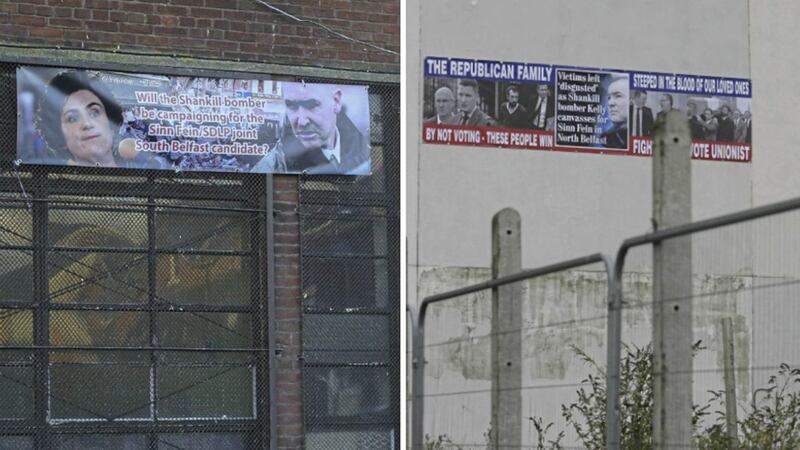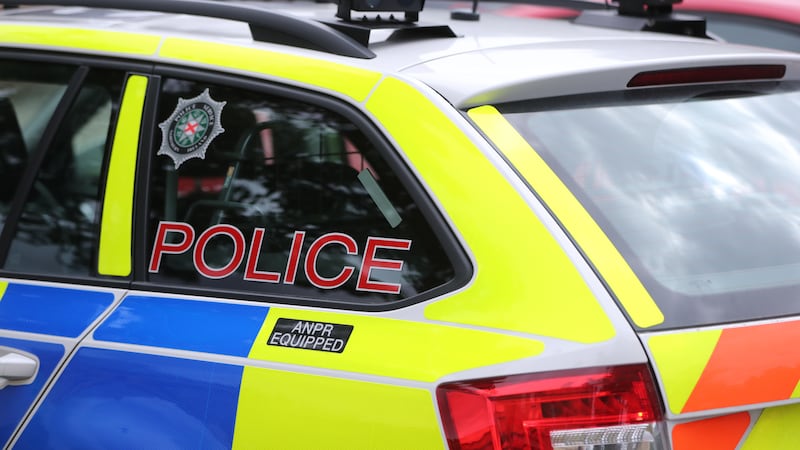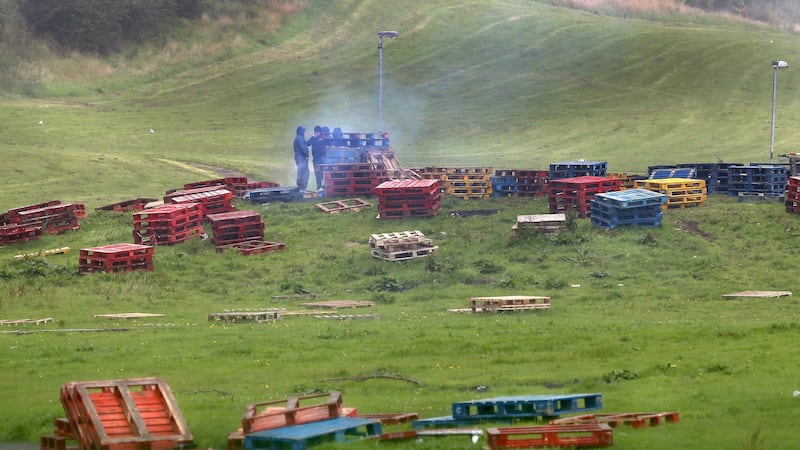ELECTORAL rules in Britain which could help regulate contentious banners were never extended to Northern Ireland.
The general election campaign in the north has been marred with controversy over loyalist banners targeting Sinn Féin's John Finucane and the SDLP's Claire Hanna.
In Britain, all printed election material – including material from 'non-party campaigners' – must carry an 'imprint' to show who is responsible for its production.
The requirement is aimed and helping ensure there is transparency about who is campaigning during an election.
However, the rules on imprints for general non-party campaigning do not apply in Northern Ireland – meaning that such campaign material can be shrouded in secrecy.
The Electoral Commission said: "We have consistently called on the UK Government to extend the imprint rules to Northern Ireland – most recently in our response to the UK government policy consultation: Protecting the Debate."
A spokesman said the loyalist posters may constitute "non-party campaigning".
"A non-party campaigner is a group which campaigns in the run-up to elections but is not a political party and does not stand candidates," he said.
"Campaign material from non-party campaigners will be regulated if it can reasonably be regarded as intended to influence voters to vote for or against political parties or categories of candidates."
Non-party campaigners in Northern Ireland must register with the commission if they plan to spend more than £10,000 during an election period.
The imprint rules apply in Britain to all printed election material even if the campaign group isn't required to register due to spending less than the threshold.








